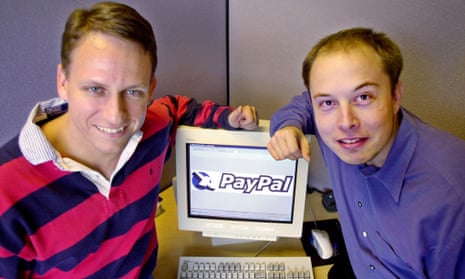Inside the Minds of the Greatest Angel Investors: What Sets Them Apart
Over the past seven decades, angel investing has shaped the trajectory of the tech industry, built empires from backroom garages, and introduced the world to companies that now define modern life. While venture capital firms often get the headlines, it’s the angel investors—the early believers—who often place the riskiest, most visionary bets. But what exactly sets the best angel investors apart? Is it sheer instinct, deep analysis, or something else entirely?
Shared Qualities of Top Angel Investors
Across the board, the best angel investors tend to exhibit a distinct mix of qualities:
-
Pattern Recognition:
They’ve seen hundreds—if not thousands—of pitches. They know what a game-changer feels like, even if it doesn’t look like one yet. -
High Conviction, Low Consensus:
They invest where others hesitate. The best bets are often the ones that sound crazy at the time. -
Domain Fluency:
Great angels often have deep experience in the startup ecosystem or specific industries. They speak the language of builders. -
Long-Term Vision:
They’re not looking for a quick flip. They want to back the next 10-year legend. -
Founder Focused:
The best angels bet on people, not just products. They look for grit, charisma, flexibility, and obsession in founders.
Legendary Names and Their Boldest Bets
-
Ron Conway – Often called the "Godfather of Silicon Valley."
Best Call: Early investments in Google, PayPal, and Airbnb.
Method: Mass diversification. Conway invested in hundreds of startups, betting on a large net rather than a single target. -
Peter Thiel – Co-founder of PayPal, first outside investor in Facebook.
Best Call: $500K into Facebook turned into over $1 billion.
Method: Deep contrarian thinking. Thiel looks for what others miss—like network effects and monopolistic potential. -
Chris Sacca – Former Google exec turned prolific angel via Lowercase Capital.
Best Call: Uber, Twitter, Instagram—all at the earliest stages.
Method: Deep networks and founder relationships. Sacca is known for mentoring and shaping startups early. -
Naval Ravikant – Founder of AngelList and master of modern angel investing philosophy.
Best Call: Twitter, Uber, Yammer, Postmates.
Method: Invest in people. Focus on asymmetric upside. Play the long game. -
Esther Dyson – One of the earliest internet investors.
Best Call: Flickr, Meetup, 23andMe.
Method: Focused on health, science, and future-facing technologies before they were hot.
Instinct vs. Method: What Really Wins?
Is it all just “gut feeling”? Not quite. The best angels build their instincts on top of years of exposure, feedback loops, failures, and successes. Intuition is a trained skill, not magic. But methods also matter:
-
Deal Flow: Top angels see better deals because of their networks.
-
Syndication: They often invest alongside other sharp investors.
-
Diligence: Even if brief, their vetting of founders is intense and personal.
-
Mentorship: Many add more than money—they open doors and shape strategy.
The Modern Angel Playbook
For aspiring angel investors today, the lessons from the legends are clear:
-
Don’t chase consensus.
-
Bet on founders, not just ideas.
-
Understand exponential potential.
-
Diversify, but stay intentional.
-
Use your network as leverage.
-
Keep learning. The market evolves.
Conclusion: Art Meets Science
The greatest angel investors are artists who learned the science. They combine gut feeling with cold data, empathy with conviction, and boldness with patience. They’ve helped write the story of innovation for decades—and if history is any guide, their early belief will continue to be the spark that lights the future.
Want to become one? Start by listening more than talking. And back the future before it’s obvious.
Inside the Minds of the Greatest Angel Investors: What Sets Them Apart https://t.co/QCAQTAOncW @RonConway @peterthiel @naval @sacca @edyson pic.twitter.com/DaCrmqYa86
— Paramendra Kumar Bhagat (@paramendra) June 27, 2025
1/
— Paramendra Kumar Bhagat (@paramendra) June 27, 2025
What makes the best angel investors tick? 🧠
Is it gut instinct, deep analysis, or raw luck?
Let’s break down what sets the legends apart—and how you can think like them. 🚀
🧵




